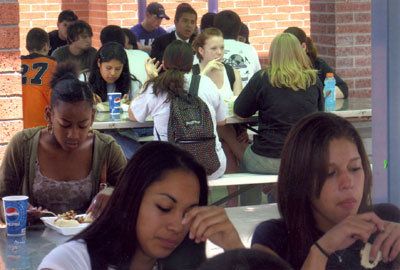All Nonfiction
- Bullying
- Books
- Academic
- Author Interviews
- Celebrity interviews
- College Articles
- College Essays
- Educator of the Year
- Heroes
- Interviews
- Memoir
- Personal Experience
- Sports
- Travel & Culture
All Opinions
- Bullying
- Current Events / Politics
- Discrimination
- Drugs / Alcohol / Smoking
- Entertainment / Celebrities
- Environment
- Love / Relationships
- Movies / Music / TV
- Pop Culture / Trends
- School / College
- Social Issues / Civics
- Spirituality / Religion
- Sports / Hobbies
All Hot Topics
- Bullying
- Community Service
- Environment
- Health
- Letters to the Editor
- Pride & Prejudice
- What Matters
- Back
Summer Guide
- Program Links
- Program Reviews
- Back
College Guide
- College Links
- College Reviews
- College Essays
- College Articles
- Back
Chemistry for Independent Learners
When I was ten or so and a determined tomboy, I dreamed of becoming a chemist. The impossibly cute stories I wrote at that tender age include many incidents in which the heroine causes an explosion using several nifty chemicals, which my ten-year-old writing self doesn't care to name.
Now, with a year of rigorous chemistry under my belt, I know that explosions are much more than mixing a bunch of special chemicals together. There are molecular processes and chemical reactions occurring that make the explosion possible. Sometimes I won’t entirely understand how something works at the chemical level. That’s when I turn to the rich realm of chemistry resources floating on the web.
For those of you planning to take regular, honors, or AP Chem (or are doing so this year), here are several helpful and fairly easy-to-navigate websites. By visiting these links, you can obtain almost all the enlightenment a tutor will give you without having to pay a cent.
Tutorial
http://www.wwnorton.com/college/chemistry/gilbert/home.htm
You don't need to own a copy of the W.W. Norton textbook in order to get a valuable experience from this website's tutorial. The tutorials include clear explanations of concepts, an attractive layout, helpful animations, and practice problems.
To go to the tutorial, click on a chapter link at the top of the page. On the new page, you should see a sidebar on the left with several links. Click on "Tutorial" and choose the topic you want to see.
Notes
http://www.wl.k12.in.us/hs/depts/sci/vonwerderp/apchem_frameset.htm
I found a sea of AP Chemistry notes when I searched online last week, but I think these are the best. They go in-depth on topics tested on the AP Chemistry exam, but in a simple, easy to understand format. Click on a topic and then choose "Notes- Text" to download the notes for each chapter. It's based on the most recent edition of Chemistry, The Central Science, an AP Chem textbook used at my school.
If your school uses Zuhmdahl's textbook, this link might help you better: http://bhs.smuhsd.org/science-dept/marcan/references.html.
Video Lectures
http://www.academicearth.org/subjects/chemistry
I only skimmed the lectures here, but so far they seem very detailed and informative. The topics are more advanced because they're college-level; the lecturers are professors from UC Berkeley or MIT. A good way to immerse yourself in the environment of a university course without traveling, paying, or worrying about grades.
Course Materials Library
http://www.chemtopics.com/courses.htm
There are too many great websites and resources to list featured in this online library. Since you probably don't have the time to sift through all the links, here are a few I suggest: "Pre-University Chemistry", "General Chemistry Online!", and "General and A.P. Chemistry Study Cards".
Practice Quizzes
http://www.sciencegeek.net/APchemistry/APtaters/directory.shtml
Use this website as review once you've finished with the above links. It's interactive and quite comprehensive. The only downside is that it doesn't explain wrong answers.

Similar Articles
JOIN THE DISCUSSION
This article has 0 comments.
